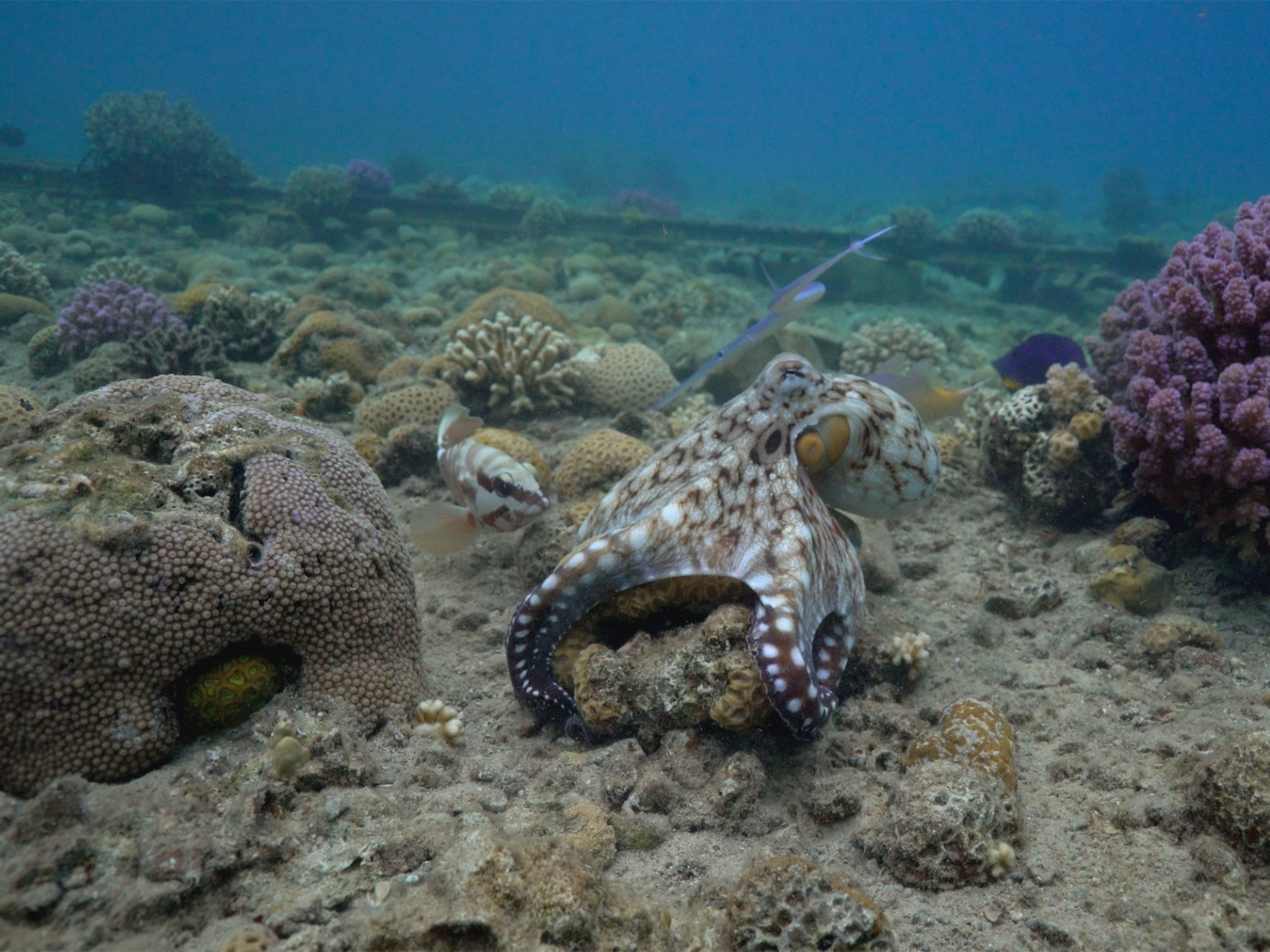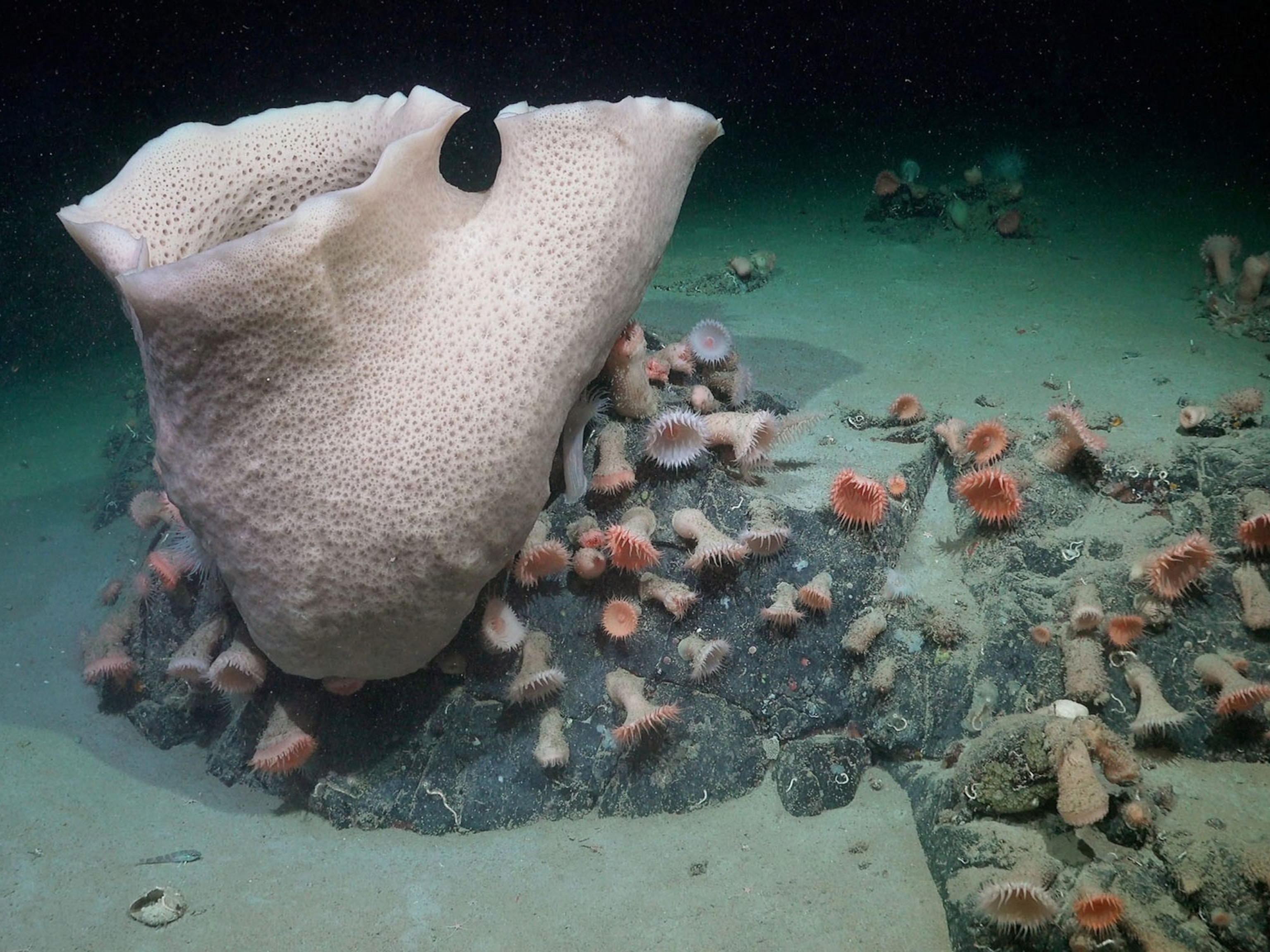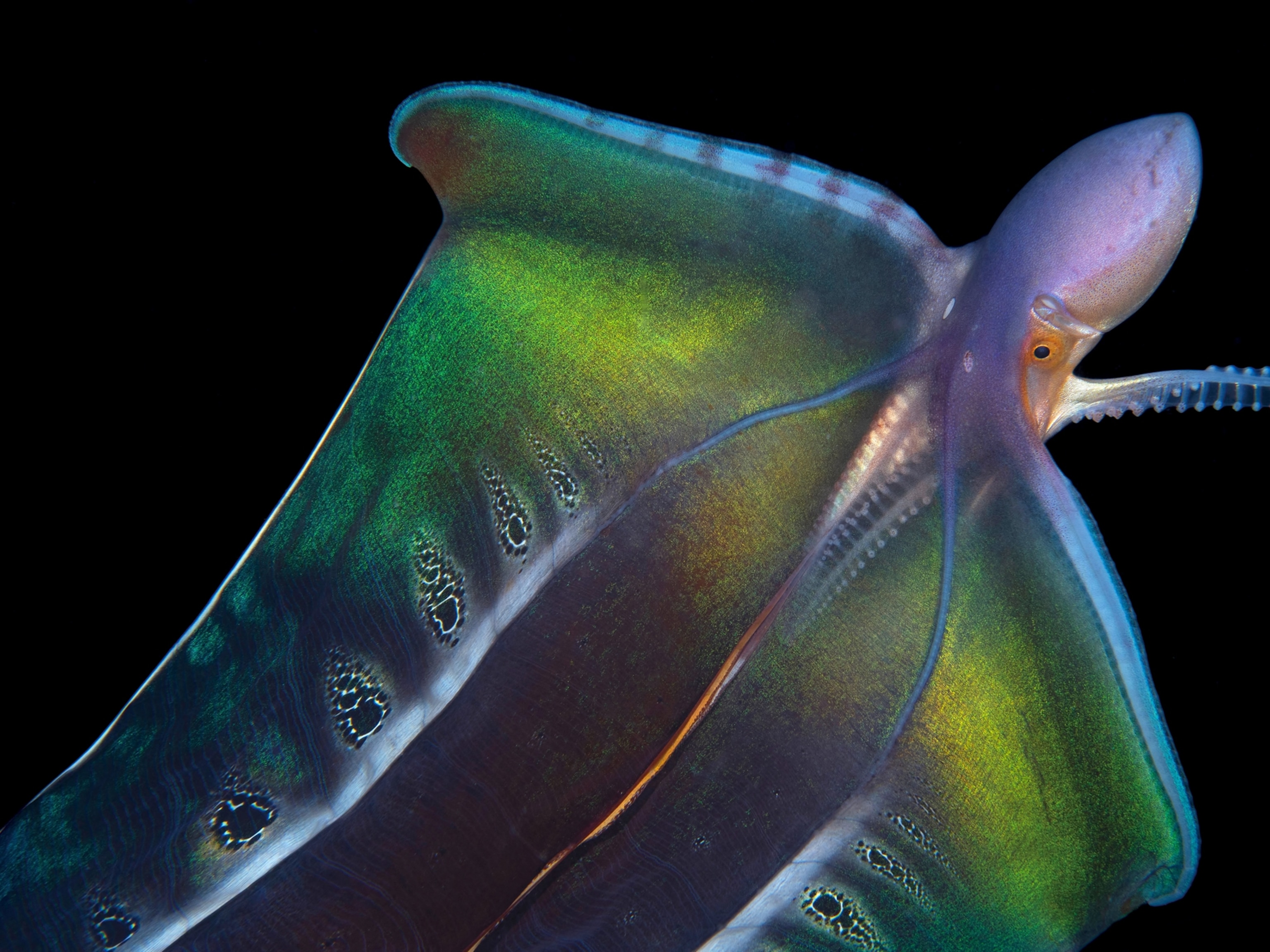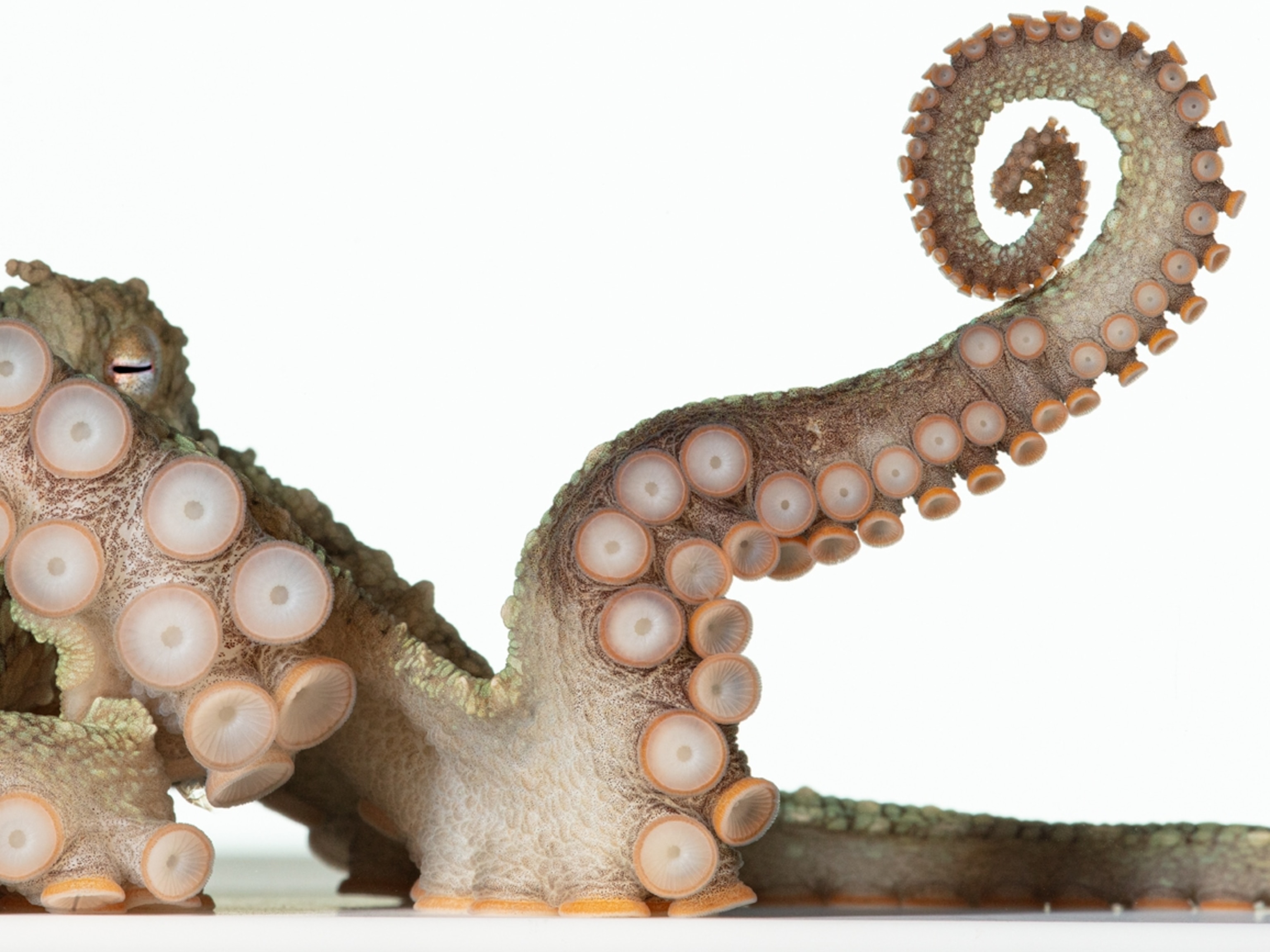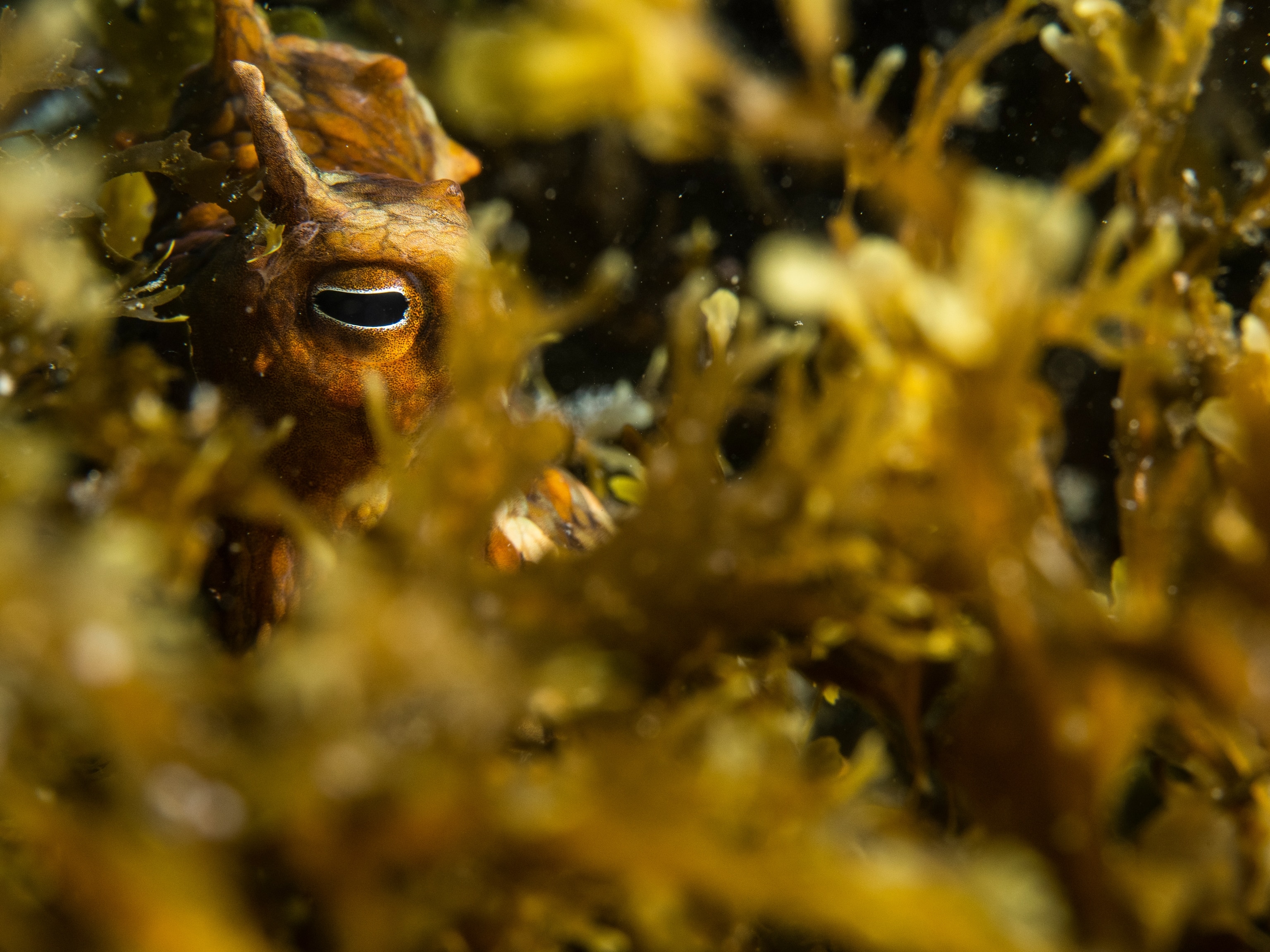Do octopuses dream?
Observations of a sleeping octopus startling awake have scientists asking if it has nightmares or is just getting old.
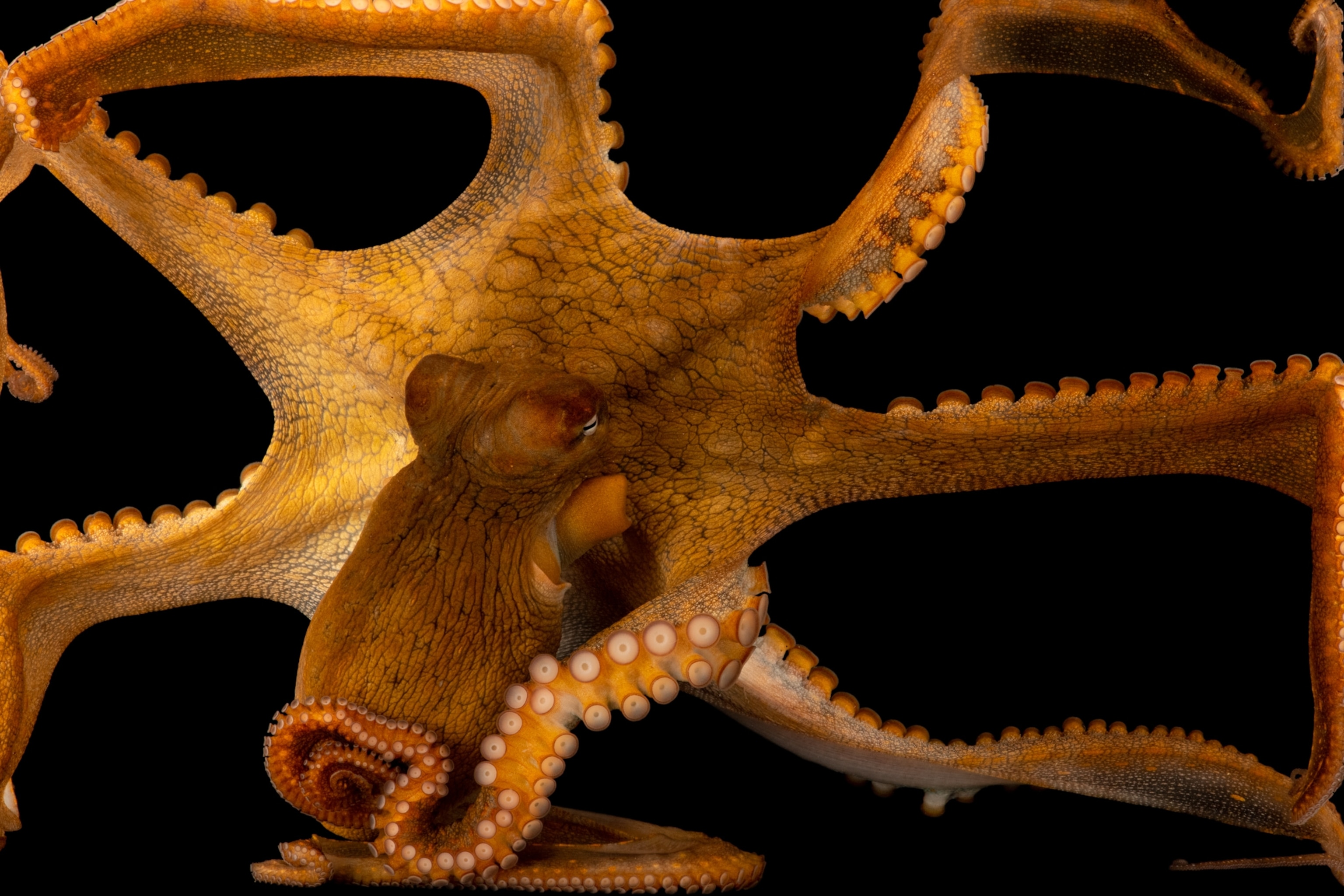
Costello the octopus may be the first evidence of the eight-armed invertebrates dreaming, a new study says.
Scientists at New York City's Rockefeller University arrived at their lab one morning and found the male Brazilian reef octopus with his arms wrapped inside a piece of PVC pipe, like he was trying to strangle it. The water in the tank was murky. Curious, the team reviewed camera footage from earlier that day.
What they saw surprised them: Costello appeared to emerge from sleep and then act out defensive behaviors before inking his tank.
Such abnormal movements suggested Costello was recalling “something stressful”—and possibly having nightmares, says Marcelo Magnasco, a biophysicist at Rockefeller who co-authored a study on the new phenomenon on the website bioRvix.
Scientists did not observe the octopus repeating the same actions, such as thrashing about wildly, during the day. (Read why octopuses remind us so much of ourselves.)
The authors, whose paper is not yet peer-reviewed, caution this is evidence from a single animal, and the reasons behind the episodes are speculative.
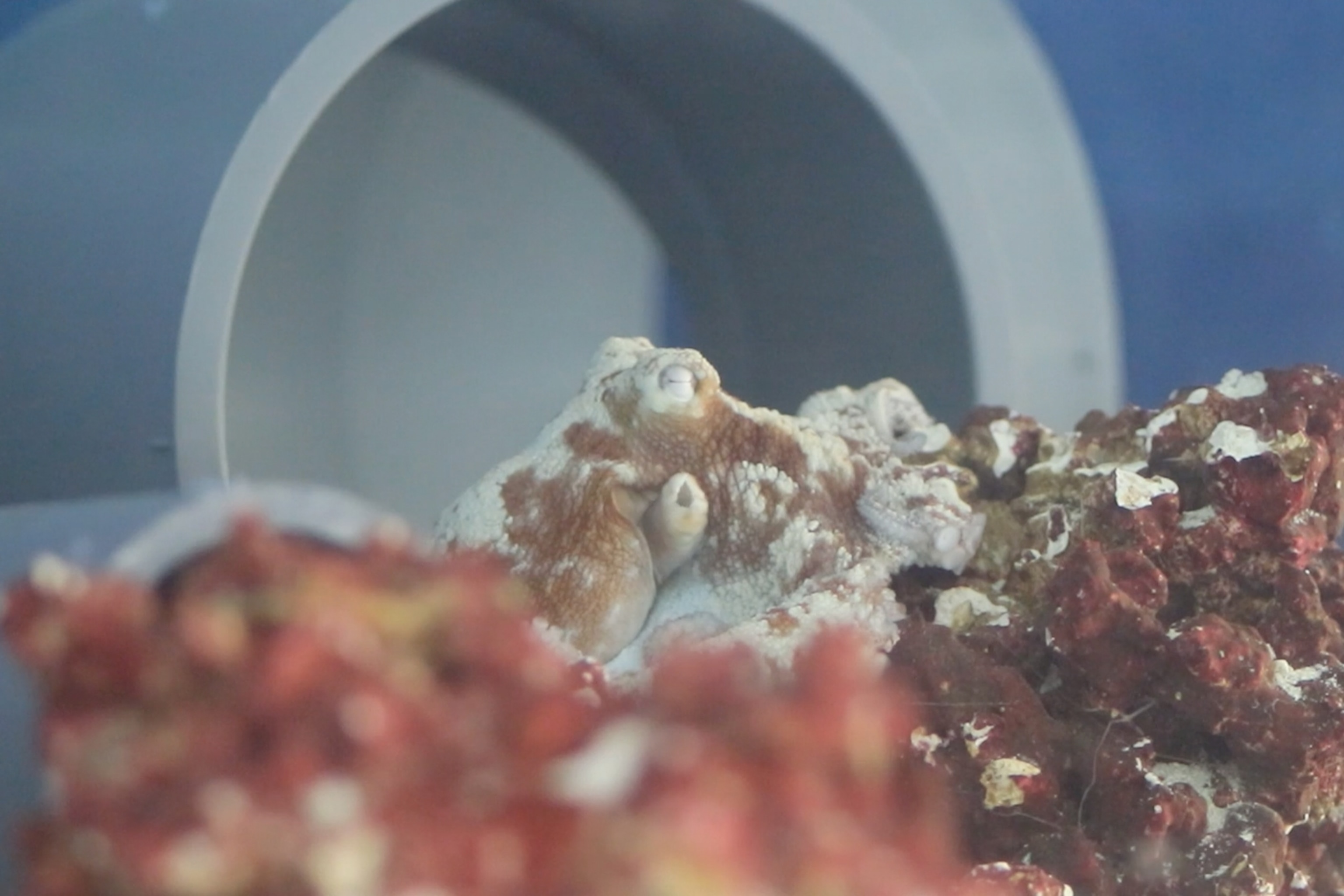
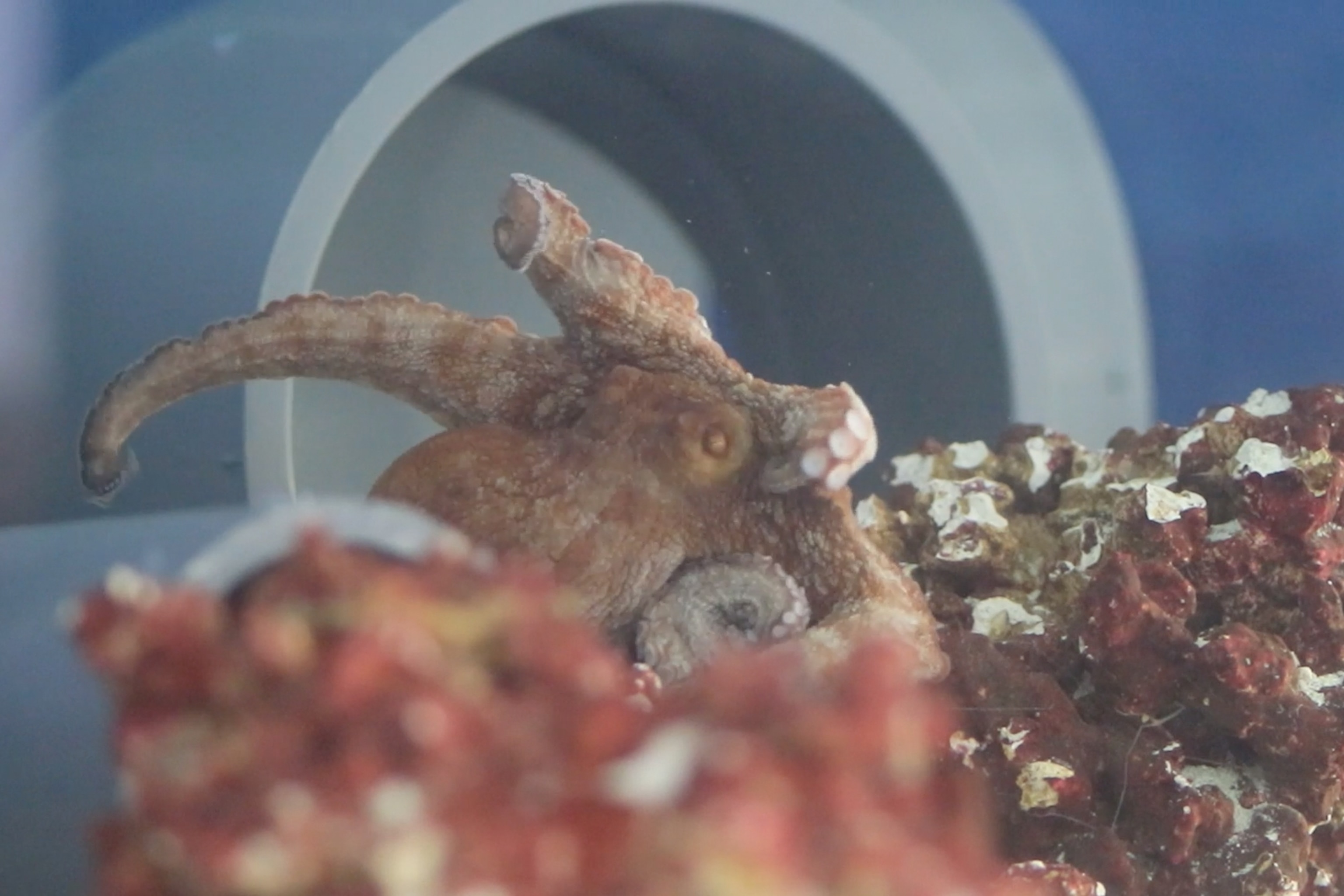
“The idea of octopuses dreaming is very compelling,” says Tamar Gutnick, an octopus expert at the Okinawa Institute of Science and Technology who wasn’t involved in the research. Though the evidence presented in this paper isn’t conclusive, the behavior is possible, she says.
“Because this activity also has displays of clearly coherent patterns which are also seen when the animals are awake, they might be imagined as a replay, which might suggest dreaming,” Gutnick says.
Unexpected episodes
Studies in several octopus species show they have different stages of sleep, including a quiet form of sleep in which the color-changing animal is a uniform or pale color, and an active stage when its skin flashes different patterns and textures.
The researchers acquired Costello, who was legally wild-caught, from a supplier in the Florida Keys in February 2021.
After witnessing the octopus' first unusual episode, the team examined 52 days of camera footage, searching for similar patterns in which Costello was stationary or asleep before abruptly changing his body movement, flailing his tentacles in a disordered way, or performing some kind of antipredatory response, such as inking.
They recorded four instances when the octopus was asleep before awakening and showing erratic and violent behaviors, and inking in two of them. (Read about other animals that dream—including spiders.)
In one episode, for example, Costello turned deep red, spun around on the floor of the tank several times, and thrashed his tentacles before releasing a large cloud of dark ink. This is how octopuses act when they’re attacked by eels or are fighting each other.
“The animal is clearly frantically trying to get away from something,” says Magnasco.
It’s possible the octopus was experiencing something akin to a sleep disorder or nightmares, such as reliving past traumas, the authors suggest. Costello arrived with damage to two of his limbs, likely from encounters with predators—ones that might stick in his memory.
“We are not trying to in any way shape or form give the impression that this is an open-and-shut case,” says Magnasco. “But ignoring this as a possibility would be foolhardy.”
A sign of aging?
Other scientists are skeptical.
“It’s easy to borrow concepts from what we know of humans, and lay them onto animals both very different and evolutionarily distant from us,” says Jennifer Mather, a psychologist at the University of Lethbridge in the U.K. “Some form of sleep seems to be very general across animals, but we have no idea what is going on in their brains.”
One hypothesis for the behaviors is simple old age. Robyn Crook, an evolutionary biologist at San Francisco State University, says the aberrant behavior is typical of an octopus undergoing senescence, the natural period of deterioration and decline before death.
Indeed, Costello's hyper-mobile arms and disorganized movements point to aging, as do his loose skin and visible lesions, she says. The animal, which has about a year life span, died naturally in April 2021.
Searching for answers
Determining whether octopuses could dream would require a solid evidence base of what happens in the brain when octopuses sleep, Crook says. (See beautiful octopus pictures.)
“There's so much to know about the neurological basis of sleep in invertebrates, before anyone could reasonably make a supposition about dreaming,” she adds.
Nevertheless, the authors suggest monitoring octopuses in laboratories round the clock could reveal similar episodes that may otherwise go unnoticed.
“If it was the case that sleep and dreams are somehow universal across a lot of animals, then it would be a really fascinating thing to try to understand why,” says Magnasco.

